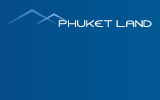Further Reading:
Legal Costs and Taxes Incurred at Closing

George Muir, a prospective investor in Phuket property asked
"Could you give me some idea of the legal costs, stamp duties if
any and other cost incurred when buying property in Thailand.
Apart for the costs of drafting sale contracts - which are not significant
in a simple transaction, but can rise if the deal is complex - there
are four areas where fees and taxes will be incurred (and paid to the
land office or the revenue department) at the point of sale of a property.
All property transactions will incur a stamp duty of half of one percent (0.5%) and, then depending whether the transaction is a lease or a sale either a 1% (registration fee) or 2% (transfer fee) will be applied. These fees are collected by the land office.
Next the transaction may be subject to a business tax of 3.3% - this will be applied to all sales by companies and (subsequent to an amendment a few years ago - intended to reduce speculation in property) to any private vendor sale that takes place within 5 years of the date of original purchase. Where due, business tax by individuals will be collected by the revenue departments desk in the land office at the point of sale (companies pay it later with their monthly tax payments)
Next comes the income tax assessment which is also collected by the revenue department desk at the land office. This is where it starts to get complex - in Thailand there is no capital gains tax (on private sales) as is common in many western counties.
In private sales - either a 5% withholding tax is taken (to be adjusted in your year end tax returns) - or and this is more efficient - you can request that income tax is calculated at the point of sale - according to a table of rates which in essence says that the longer you own the property the greater the proportion of its value is taxable. That taxable income is then divided into the number of years of ownership (to get an annual income) and then multiplied by the applicable personal income tax rates for those years - in practice this will work out to under 2% of the price for properties of low to medium value (higher marginal tax rates for large incomes can push the figure significantly higher for very valuable properties). In a corporate situation a 1% withholding is taken at the point of sale and the sale price goes onto the corporate balance sheets.
Now here comes the significant rider - all the above figures should be viewed in regard to the declared (or if greater the governments minimum assessed valued) for a transaction rather than the actual market price. Assessed values typically vary from 20% to 80% of market value (with assessed values for condos being closest to and those for raw land being the furthest from market price). So in practice the total cost of sale will be much lower than the base fees would initially suggest.
Who pays these various fees and taxes at the point of sale is a negotiable matter between buyer and seller - there is no fixed rule, but generally they will be somehow split. It is important that these are stated in your purchase contract.
+++++++ LEGAL UPDATE - The Condominium Act has recently been amended and it is now possible for 49% of the units in all condominiums and for 100% of the units in condominiums with a total development area of under 5 rai located in Bangkok, all municipal districts and such other areas as shall hereafter be announced by the Minister of the Interior (which is expected to include rural Phuket) to be foreign owned, provided always (this is unchanged) that the funds for the purchase have been remitted from aboard.


